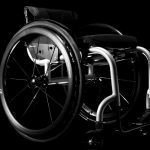Right to independent living being denied
In December 2016, the Equality and Human Rights Commission launched a formal inquiry on housing for disabled people. The inquiry examined whether the availability of accessible and adaptable housing, and the support services associated with it, fulfilled disabled people’s rights to independent living.
The inquiry’s report has now been released and has uncovered 4 major challenges.
Disabled people are demoralised and frustrated by the housing system
Disabled people report a severe shortage of accessible houses across all tenures. As a result, they are more likely to live in social housing, as it is more affordable, tends to provide more security of tenure, and landlords are more willing to install adaptations and provide support, if required. This has resulted in Social housing becoming particularly pressured, with long waiting lists.
Information on the accessibility of properties is particularly poor in the private sector. Estate agents, for example, do not typically provide information about the accessibility of private lets or houses for sale.
There is a chronic shortage of accessible homes
Local authorities are not building enough accessible homes to meet demand. The number of disabled people is increasing; in 2016, there were an estimated 13.3 million disabled people in Britain, up from 11.9 million in 2013/14 (ONS, 2017).
Few local authorities across Britain set targets for accessible housing and many reported that developers are reluctant to build accessible houses, as they see them as less profitable. Additionally, many reported that developers did not comply with accessibility regulations on the houses they were building.
Installing home adaptations involves unacceptable bureaucracy and delay
Adaptations vary from minor changes such as fitting grab rails, to bigger changes such as the installation of stair lifts, wet rooms, hoists and even an extra bedroom. The survey found that the time between application and installation is, on average, 22 weeks (eight weeks for a decision and 14 weeks for installation), although some local authorities have waiting times of a year or more.
Disabled people face particular problems in the private rented sector, which is growing, especially in England. Disabled people, occupational therapists and local authorities all reported that private sector landlords are reluctant to allow adaptations.
Disabled people are not getting the support that they need to live independently
It takes more than bricks and mortar to ensure that disabled people are able to claim their right to independent living. Access to advice, support and advocacy plays an important role, yet provision is patchy and people report that they have nowhere to turn when their housing is unsuitable, they have difficult choices to make, or they are facing a crisis. A consistent theme from the evidence was that navigating the complex systems for allocations and adaptations was stressful and challenging.
Recommendations
As a result of the findings, the Commission is recommending that the area of housing for disabled people is improved by:
- There are more accessible and adaptable houses built
- The installation of home adaptations is improved
- Homes are matched to the people who need them
- More support is given to enable disabled people to live independently
You can download a full copy of the report on housing for disabled people here.






Recent Comments